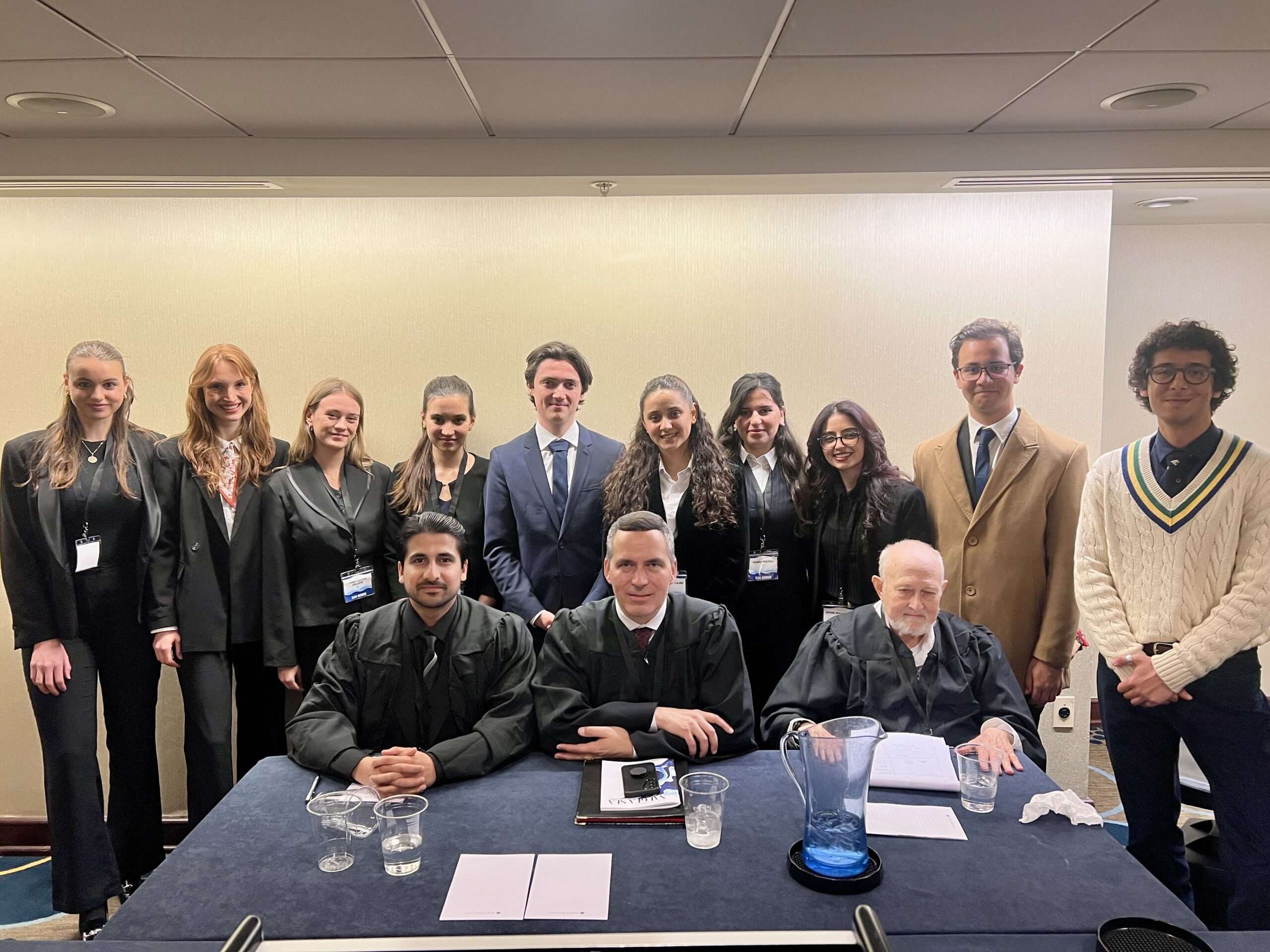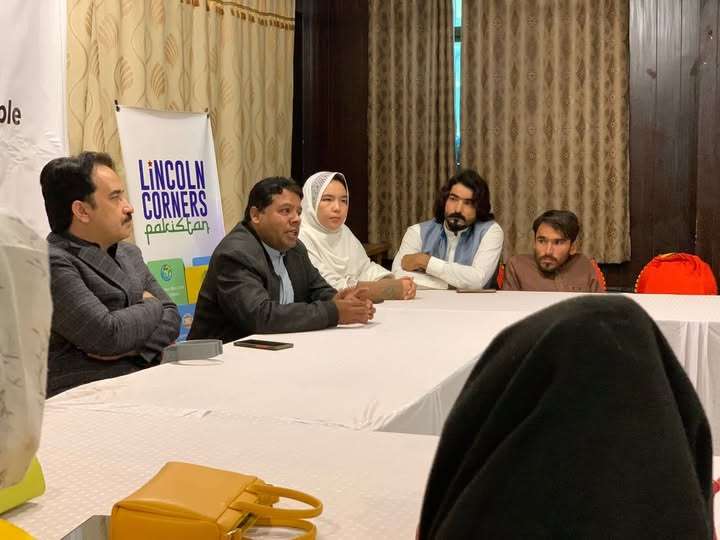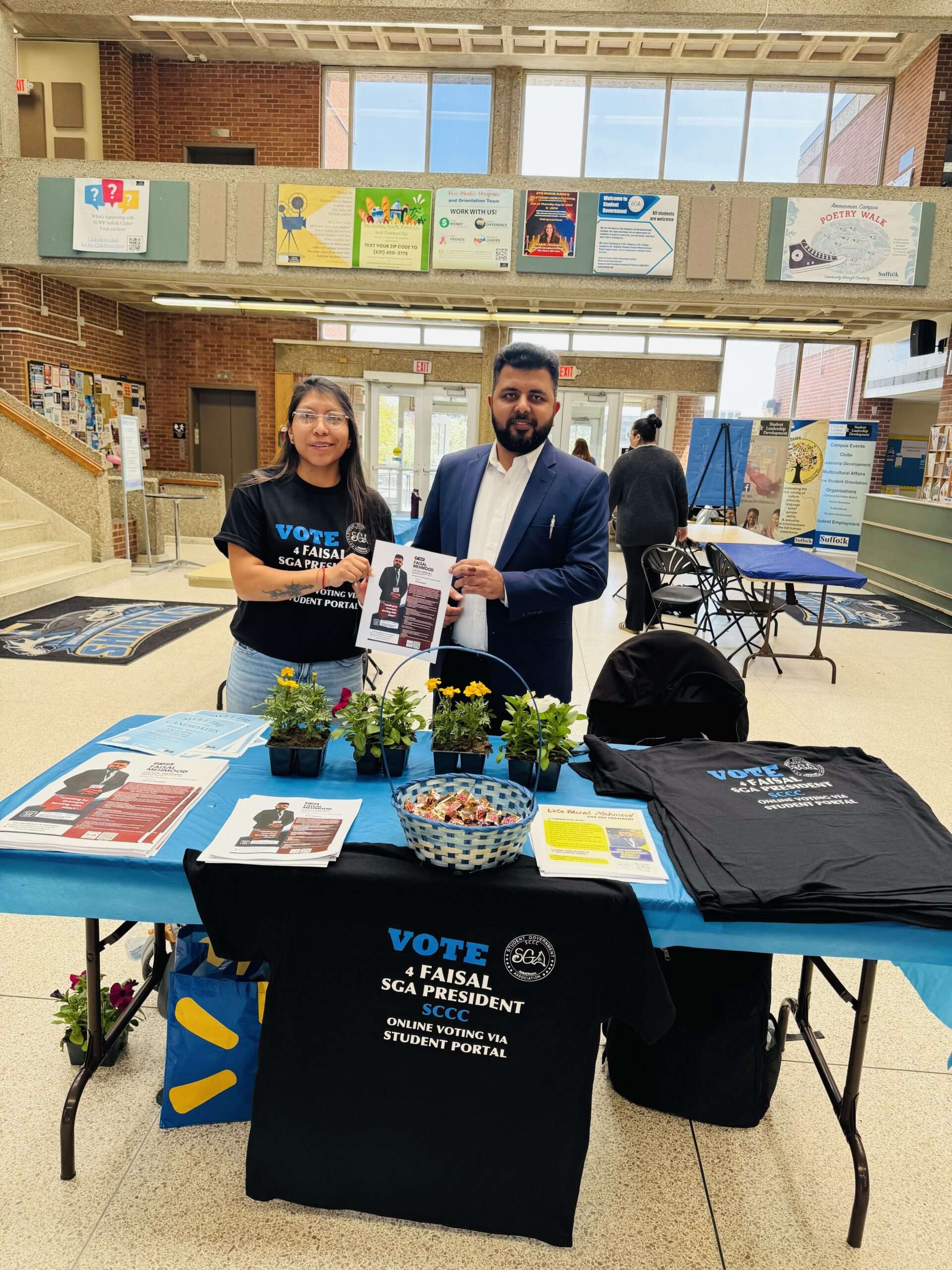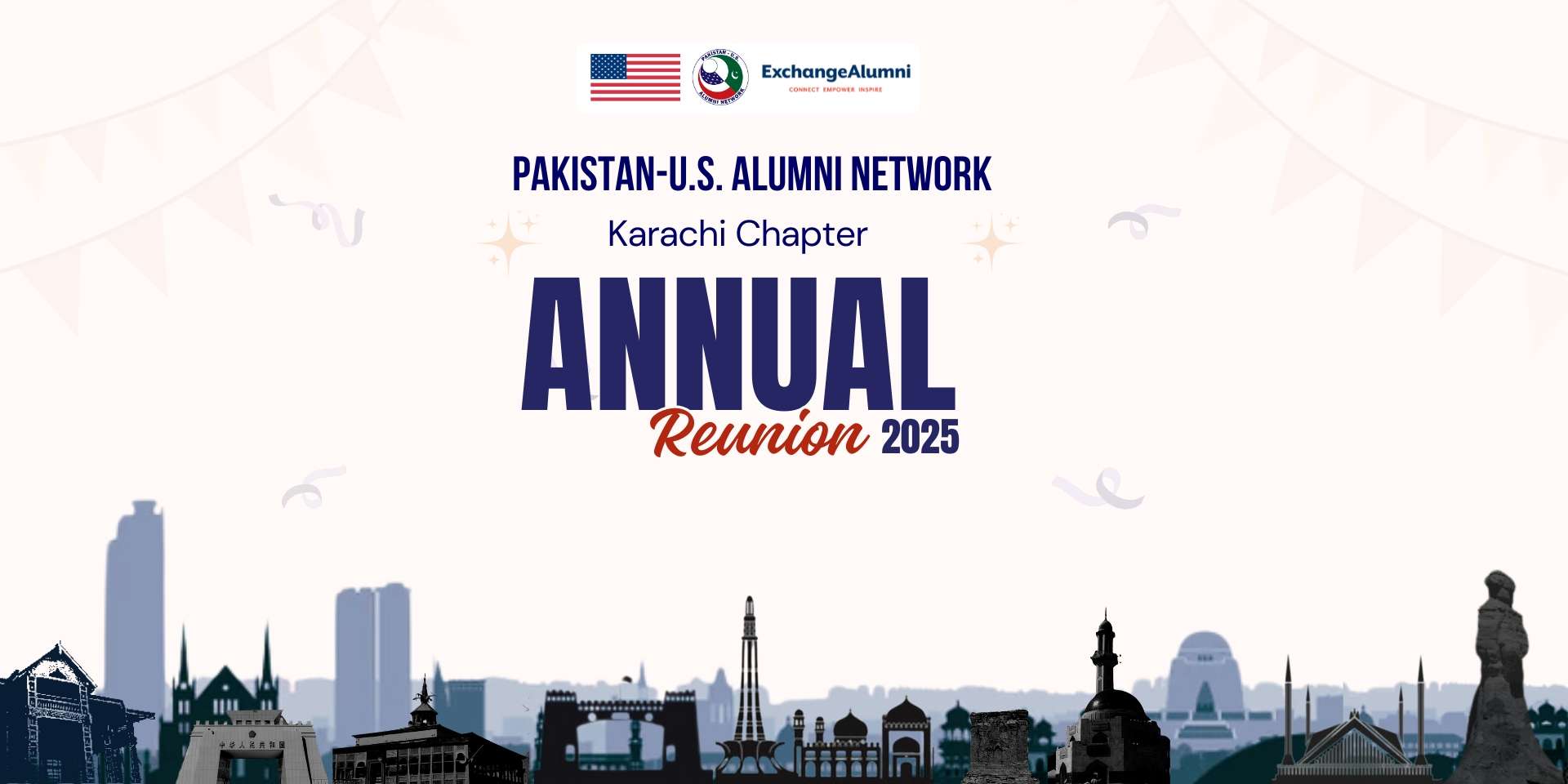By Hira Nafees Shah
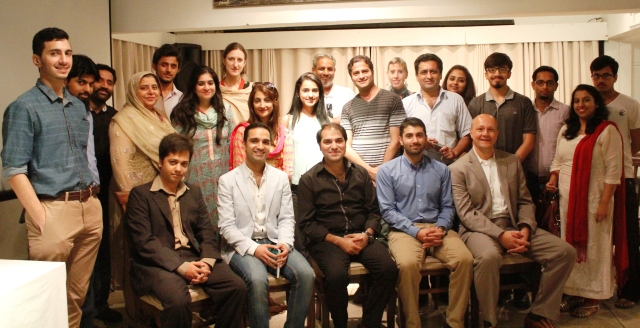
The Islamabad chapter of the Pakistan-U.S Alumni Network arranged an international online discussion session exploring Pakistani and Indian perspectives on the 1947 Partition of their two countries on Saturday, August 9th 2014.
Indian Fulbright Alumnus Jasmine Shah was the chief guest on the occasion who addressed the fifty plus audience via Skype from New Delhi. Shah is spearheading an Alumni Engagement Innovation Fund (AEIF) project to engage the youth in improving Indo-Pak ties through the recording and dissemination of first-person accounts of Partition.
“The Voices from Partition AEIF project was our small way of doing something on an initiative which is important to us,” said Shah at the outset. The venture, which engages about 20 U.S. Department of State alumni from Pakistan, India, and Bangladesh, hopes to integrate existing content about the partition on to a multi-media website, so as to collect a multitude of voices about the division of the sub-continent.
Shah was joined by Pakistani panelists Hassan Raza and Usama Khilji, who advocated for reforms to national educational curricula to portray a fuller picture of the independence movement. They also stressed how an understanding of each nation’s perspective of the difficult events of partition can help to build mutual understanding that can benefit both countries.
“There is a need to move on from the bitter experiences of the past in order to build a better future for Pakistan and India,” said Raza.
The speakers also touched upon the importance of people-to-people contacts and social media in bridging the gap between the citizens of the two countries.
“I thought the initiative was very good as it is about time that the subject is discussed in a more rigorous and comprehensive manner,” said Dr. Sufia Mumtaz, an anthropologist who attended the discussion.
Another participant said the dialogue had helped to change his perspective about Indo-Pak relations and stressed that the youth should play a decisive role in this regard.
“The youth should bridge the gap between both the countries and build relationships to build the economy,” said Sajjad Alam.
For Muhammad Wajih Shafiq, a Benjamin Franklin alumnus, the best aspect about such initiatives is that they enable the participants to raise issues in a polite manner.
“I think there should be a cultural offensive to humanize each other,” he said while referring to the uneasy relations between Pakistan and India.
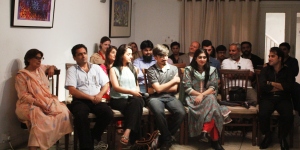
Shafiq added that while listening to the Voices of Partition conversation, he had an idea that he should like the Facebook page of Humans of New Delhi, so that he could reach out to his young counterparts in the neighboring country.
Meanwhile, SUSI Alumna Palwasha Ishfaq was of the view that the citizens of Pakistan and India can play an important role in creating mutual understanding between both the countries.
“I think the more we meet, the more we can clear misconceptions,” Ishfaq said. “In this way, we can all be ambassadors of peace.”
Shah also concluded his remarks on the same note at the end of the session.
“We can only progress if we are at peace with the past,” said Shah. “There is a need for a more nuanced discussion on the partition, so we should encourage everyone to support cross-border peace initiatives.”
Voices From Partition is part of a U.S. Department of State-funded Alumni Engagement Innovation Fund (AEIF) grant. You may read more about Mr. Shah’s project, and hear some voices of partition yourself, at: https://m.facebook.com/VoicesFromPartition


